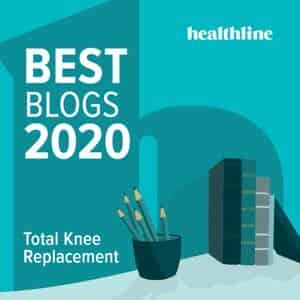djacksonsf
junior member
- Joined
- Dec 24, 2019
- Messages
- 88
- Age
- 62
- Country
 United States
United States
- Gender
- Male
Hi,
I'm 58 and looking for guidance about how much to walk after anterior THR.
My surgery was on 12/10. For the first week, I mainly walked around my house, but ended the week walking around the block. No pain, no swelling, no need for oxycodone and I discontinued use of the walker because it started getting in the way. I did have some pain above the knee and the sensation that the operative leg was longer, but that's gradually going away as I believe my body becomes accustomed to the realignment that resulted from the THR.
The second week, I walked a bit more outside, always at a slow pace and taking stairs one at a time. Got plenty of sleep, ate really well, etc. Throughout this time, I've been doing exercises prescribed by my doctor - tightening the muscles around the knee, tightening my butt, dragging the heel of the operative leg towards my butt, abduction while on the floor and mini squats. No pain or ill effects from any of this.
Yesterday - the 2 week mark - I walked more than 2 miles on a flat surface at a slow pace. I feel a little bit sore, but nothing to complain about. I asked my doctor about it and his team told me to listen to my body. While helpful, this answer isn't very specific.
My body seems to be telling me I'm doing a good job, but I just want to make sure that I'm not doing anything to upset the implant. Some literature seems to indicate that movement promotes bone growth. Other content cautions against too much movement or weight bearing. I've also seen information posted specifically for recovery from anterior THR that says people in good shape can walk as much as a mile a few times a day at the 2-week mark.
I'll be off work for another month, and just plan to gradually increase my distance based on my tolerance of the additional activity.
Does anyone have feedback or input?
-D
I'm 58 and looking for guidance about how much to walk after anterior THR.
My surgery was on 12/10. For the first week, I mainly walked around my house, but ended the week walking around the block. No pain, no swelling, no need for oxycodone and I discontinued use of the walker because it started getting in the way. I did have some pain above the knee and the sensation that the operative leg was longer, but that's gradually going away as I believe my body becomes accustomed to the realignment that resulted from the THR.
The second week, I walked a bit more outside, always at a slow pace and taking stairs one at a time. Got plenty of sleep, ate really well, etc. Throughout this time, I've been doing exercises prescribed by my doctor - tightening the muscles around the knee, tightening my butt, dragging the heel of the operative leg towards my butt, abduction while on the floor and mini squats. No pain or ill effects from any of this.
Yesterday - the 2 week mark - I walked more than 2 miles on a flat surface at a slow pace. I feel a little bit sore, but nothing to complain about. I asked my doctor about it and his team told me to listen to my body. While helpful, this answer isn't very specific.
My body seems to be telling me I'm doing a good job, but I just want to make sure that I'm not doing anything to upset the implant. Some literature seems to indicate that movement promotes bone growth. Other content cautions against too much movement or weight bearing. I've also seen information posted specifically for recovery from anterior THR that says people in good shape can walk as much as a mile a few times a day at the 2-week mark.
I'll be off work for another month, and just plan to gradually increase my distance based on my tolerance of the additional activity.
Does anyone have feedback or input?
-D




 As you said, overdoing on a walk is a whole lot easier to rebound from than overdoing with PT---once you've damaged that soft tissue again it seems to take twice as long to settle back down.
As you said, overdoing on a walk is a whole lot easier to rebound from than overdoing with PT---once you've damaged that soft tissue again it seems to take twice as long to settle back down.
 ! You've already gotten a ton of great advice and you seem to have a good plan of action. And it seems you've learned from your previous mistakes during previous rodeos and aren't in a hurry to repeat them. That is very good!
! You've already gotten a ton of great advice and you seem to have a good plan of action. And it seems you've learned from your previous mistakes during previous rodeos and aren't in a hurry to repeat them. That is very good!

 and glad you've joined us.
and glad you've joined us.

